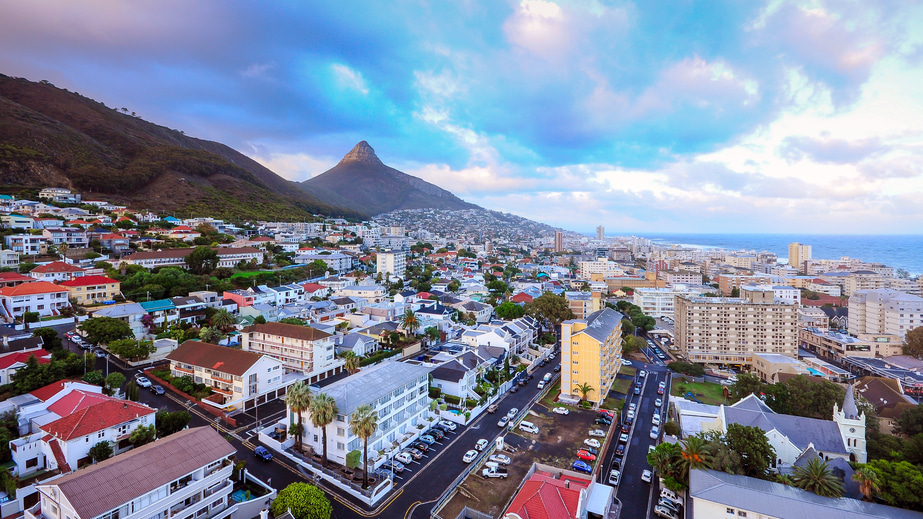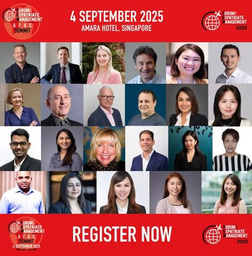The serviced accommodation industry hots up in Africa

Many companies find it difficult to do business in Africa for a number of reasons, but particularly because of the inconsistencies in infrastructure from country to country as well as numerous health and security concerns.
Nevertheless, the possibilities posed by Africa are encouraging employers to invest in assignment and relocations to the continent, especially in Sub-Saharan Africa where in countries such as Rwanda there is a young workforce, and a relatively high level of working women. Oil, gas and mineral deposits are the obvious draw for foreign companies and governments in countries such as Somalia are trying hard to lure back the oil giants, with some success as BP, Chevron, Exxon Mobil and Royal Dutch Shell have made tentative explorations around the Horn of Africa, but security issues remain a serious concern.
The 2016/17 Global Serviced Apartments Industry Report (GSAIR) from The Apartment Service has examined the state of the industry in Africa and has some interesting findings – particularly in relation to the global mobility sector:
Overall, the report finds, the volume of assignees deployed in Africa remains low, and they tend to be business-critical and highly targeted. The main locations to which companies are sending their people are Accra in Ghana, Lagos in Nigeria, Johannesburg and Cape Town in South Africa. Unsurprisingly then, these locations are where the bulk of serviced apartments are concentrated.
The changing nature of industry and assignments
Research by Crown World Mobility found that 89% of companies surveyed were deploying assignees in Africa on long-term projects, compared to 56% on permanent relocations and 50% on short-term projects. Security remains the biggest challenge for 94% of companies, followed by cultural adjustment and assignee acceptance.
Since 2000, Africa has seen an average GDP growth of over 5% per annum, with the Sub-Saharan region averaging growth of close to 6%. The continent’s recent economic progress has come from a range of sources including the oil, gas and mining sectors but these industries are increasingly being challenged by technology start-ups across the region.
According to the World Bank, over 50% of African countries now have at least one technology hub, whilst investments via the tech hub model have doubled over the last two years. Ghana’s Hope City will employ an estimated 50,000 people on software design and manufacturing; Kenya’s Konza Technology City is being built 60 miles from Nairobi. Each of these new technology cities includes plans for hotel developments – and serviced apartments, as Mark Essien, CEO of Hotels.ng confirms.
“The growing technology sector in Africa is helping to expand the travel industry. Easier online discovery, combined with growing consumer confidence in online bookings has made it extremely straightforward for us to cater directly to travellers’ needs.”
Rising levels of business travel
Despite much slower economic growth in 2015 compared to 2014, Africa continues to see rising international inbound business and leisure travel volumes. Airlines and hotels recorded a much better year than they did in 2014, when the after-effects of the Ebola epidemic in West Africa were still being felt.
At the time of the last GSAIR there were 8,802 serviced apartments in 102 locations in Africa. Today there are 9,477 in 166 locations, a rise of 7.6% and 62.7% respectively in just 18 months. This shows the rising level of interest in the sector, although supply is still limited across the African continent, with a particular shortage of quality serviced apartment accommodation. Where there is supply, the range of amenities and service available to guests often extends purely to daily cleaning.
However, there are hot spots, such as Cairo (Egypt), Marrakesh (Morocco), Accra (Ghana), Dar es Salaam (Tanzania), Abuja (Nigeria) and Nairobi (Kenya). Business travellers to Nairobi make up 26% of all arrivals; business travel and conference delegates accounts for 31% in Accra.
The global serviced apartment brands are gaining a foothold. In 2015 Marriott opened the first Marriott Executive Suites in Addis Ababa in partnership with Sunshine Business. Marriott now plans to open an additional 12 properties across Africa by 2020. Residence Inn is looking to open in Accra and Lagos, and Frasers, The Ascott Ltd and Adagio are also targeting the sub-Saharan market.
An imbalance of supply and demand
The new wave of multinational and tech start-up companies looking for offices in African cities is generating demand for high quality residential space to house a growing international assignee population, especially in key regional hubs such as Nairobi and Lagos.
However, despite the increasing demand for long stay accommodation, there is still under-supply in the extended stay segment. The GSAIR concludes that this is probably due to the immaturity of the African hospitality market; five-star developments tend to come first in developing countries, followed by the mid-scale and budget sectors. In Africa, the next step is to develop branded, extended stay, and this seems to be in progress as a number of investors are planning major developments in Nairobi and Accra.
And like any immature market, GSAIR argues, lack of recognition is a major problem, as Abi Adisa, CEO of Amara Suites, told Serviced Apartment News in November 2015. “The serviced apartment sector is classified under the hospitality sector… so serviced apartments are often mistaken for hotels. Fortunately, there is a slew of emerging market economies around the world in which serviced apartments experienced a similar journey from obscurity. That’s what is beginning to happen in Africa.”
Another restraining factor is the taxes and fees imposed by governments in different areas of Africa, including Nigeria. These range from land levies to consumption taxes, sanitation taxes and radio licenses, the cost of which can only be recouped by operators through higher rental rates. However, as Abi Adisa points out, “some governments are making an attempt to reduce this limiting force, recognising the negative impact it has on foreigners trying to do business.”
Key destinations:
In common with other countries in Africa, supply of serviced apartments in Ghana, West Africa is largely restricted to un-branded or locally operated, independent properties. Typically, local offerings tend to be one or two bed apartments. By contrast, Accra is well served by international hotel brands. Movenpick, Golden Tulip and Holiday Inn are all in evidence, catering for the business traveller.
However, demand for long-stay accommodation is rising fast. The in-bound business travel market is growing by 6% year on year, due in part to the thriving oil sector. According to Colliers International, the UK and USA are Ghana’s two largest source markets, accounting for 8% and 10% of arrivals respectively, although the Ghana Tourism Authority is trying to diversify by targeting the Malaysian and Chinese markets.
Kenya
The Kenyan capital Nairobi is an increasingly important regional hub, attracting international companies engaged on long-term projects to East Africa. Serviced apartment supply in Nairobi covers the full spectrum of apart-hotel, branded residence and corporate housing products, the first differentiated as in other countries by the provision of 24-hour reception, housekeeping and laundry services, on-site restaurants and other amenities.
Although one bedroom apartments are the most popular, two-bed units are growing in popularity. Three bedroom apartments tend to be serviced, but unfurnished.
The total number of serviced apartment units in Nairobi has risen on average by 26% every year since 2011, with the greatest concentration in the Westlands area of the city. More recent additions tend to be larger complexes with more apartments, with more up-scale products and amenities. This rapid growth has given rise to concerns over future over-supply, however Nairobi has a number of emerging areas, such as Upper Hill, where demand is rising from assignees working in the neighbouring commercial districts.
HVS predicts that, as the local market matures, demand for specialist management services will lead to the emergence of branded operators such as Adagio and Hyatt managing properties as they do in other regions. This should produce greater standardisation of products and a general up-lifting of standards.
South Africa
The hospitality sector in South Africa is the most mature and diverse on the continent, driven partly by globalisation and partly by South Africa’s re-entry in to the global tourism economy after 1994. Since 2009 the serviced apartment sector (often referred to locally as the executive serviced apartment sector) has expanded significantly alongside other hotel alternatives such as hostels, timeshares and guest houses.
The local market is dominated by serviced apartment complexes and hybrid developments that combine serviced apartments with either residential or traditional hotel products. Two-bed apartments are the most popular, although studios and one-bed apartments also feature. The majority are privately-owned, with Marriott again leading the charge on behalf of the major brands.
Johannesburg and Cape Town are South Africa’s most popular destinations for foreign investors, and are joined by Pretoria and Ekurhuleni as the major hubs for international business tourism.
There is a strong grading culture in the South African serviced apartment market, which adopts the same criteria as hotels and self-catering establishments. According to Greenberg & Rogerson’s A new phenomenon in urban tourism, 74% of serviced apartments are graded, with the largest group being classified as four star or five star. Average rental periods range from two weeks to three years.
Supply and cost differentials across Africa
The report estimates that there are 9,477 serviced apartments in 166 locations across Africa. On this basis, Africa accounts for just 1.15% of the global serviced apartments market in 1.54% of the world’s serviced apartment locations.
The significant disparity seen between the average rental rates for a studio apartment in the primary South African market and the emerging markets in the last GSAIR has been eroded.A studio apartment now costs €58 in Nairobi for stays of up to one week compared to €63 in Cape Town. Internationally, serviced apartments in Africa cost, on average, less than anywhere else in the world except Central and South America.
To read the 2016/17 Global Serviced Apartments Industry Report (GSAIR) in full, click here
For more news and analysis, see our Real Estate and Corporate Housing channel
To find out more about security risk in Africa and across the globe, see our Travel, Health & Security Risk channel





Please sign in or register for FREE
Sign in OR sign up to become a registered The Forum for Expatriate Management website user
Subscribe here